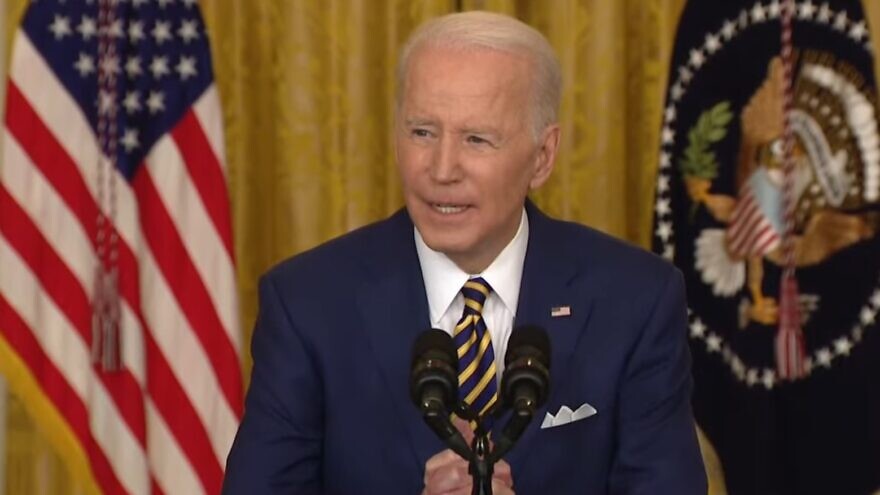The Popular Front for the Liberation of Palestine (PFLP) has announced that it was responsible for two recent attempts to murder Israeli Jews, including one in which an American citizen was severely wounded.
Does it matter which of the various terrorist gangs carried out those attacks? Yes, it matters. Very much.
When Hamas or Palestinian Islamic Jihad attempt to murder Jews, the Biden administration does not have to worry that anybody will ask it to do anything in response. After all, the U.S. administration has no influence over the “extremists” like Hamas or PIJ. It doesn’t give them any financial aid. It doesn’t have political relations with them.
But when the terrorism is the handiwork of a “moderate” Palestinian faction—one that is part of a body that receives American aid—that creates a political problem for the president. Journalists or Jewish organizations can legitimately press for America to respond—and that is something the administration does not want to do.
The PFLP is not some outcast, extremist group. It is the second-largest faction in the Palestinian Authority, which has received more than $10 billion in U.S. aid since 1993. Currently, the Biden administration is paying many of the P.A.’s bills by sending $600 million to non-P.A. agencies, which then pay various expenses that the authority would otherwise have to pay.
The PFLP has also been part of the P.A.’s parent body—the Palestine Liberation Organization (PLO)—since the founding of the PLO in 1964.
When Yasser Arafat signed the Oslo Accords in 1993-95, he agreed to disarm and outlaw terrorist groups. But he never disarmed or outlawed the PFLP.
When Mahmoud Abbas succeeded Arafat as head of the P.A. and the PLO in 2004, he assumed the Oslo obligation to disarm and outlaw the PFLP. Nineteen years later, Abbas still hasn’t lifted a finger against it. He has never sent the P.A.’s American-trained and American-armed security forces to arrest PFLP terrorists or shut down their weapons depots.
The last time that elections were held for the P.A.’s legislative body, the Palestinian Legislative Council, in 2006, the PFLP was allowed to run. It called itself the “Martyr Abu Ali Mustafa List”—Mustafa was general-secretary of the PFLP and responsible for numerous murders. The P.A.’s Central Elections Commission approved the participation of the Mustafa List in that year’s race. It won three seats in Abbas’s putative parliament.
When local elections were held in the P.A.-occupied parts of Judea-Samaria in 2012 and 2017, its Central Elections Commission again had no problem approving the PFLP’s involvement.
Now you can see the problem for the Biden administration. Imagine the kinds of questions that journalists could ask U.S. officials:
“Do you accept Abbas’s decision to keep the PFLP as part of the P.A. and the PLO, even though the PFLP assassinated an Israeli cabinet minister, Rehavam Ze’evi?”
“Have you asked Abbas to insist that the PFLP pay reparations to the family of Harold Rosenthal, the aide to Sen. Jacob Javits whom the PFLP murdered at the Istanbul airport in 1976?”
“Are you urging Abbas to demand that the PFLP pay reparations to David Stern, the U.S. citizen whom the PFLP shot and wounded earlier this month?”
“Do you think the P.A. security forces should use their American training and American weapons to arrest PFLP terrorists?”
“If Abbas is against terrorism, why does he continue to embrace the PFLP terrorists?”
The Biden administration desperately wants to avoid having to face such questions. It does not want to be forced to either criticize the P.A.—something it is loath to do—or appear to be tolerating terrorists, which it likewise wants to avoid.
Hence, the U.S. administration has adopted a kind of “Don’t Ask, Don’t Tell” policy. It wants the media and Jewish organizations to refrain from asking about the PFLP, and if the questions are not asked, then the administration certainly won’t voluntarily tell the public anything about the subject.


























